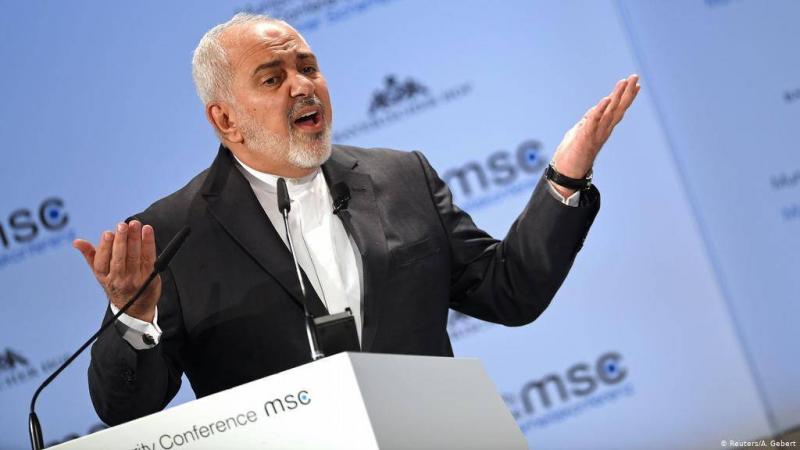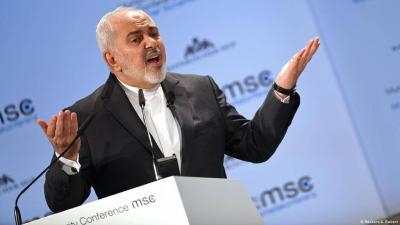Iranian Foreign Minister Mohammad Javad Zarif confirmed that his country will not prevent International Atomic Energy Agency (IAEA) inspectors from accessing nuclear facilities, provided the United States does not lift sanctions against Iran by February 21.
Zarif clarified in a statement reported by CNN that this does not imply expelling IAEA inspectors but rather reducing their numbers and imposing restrictions on them. He noted that the European coordinator of the Joint Commission could arrange for the return of the U.S. and Iran to the nuclear agreement, asserting that the administration of U.S. President Joe Biden has not yet defined a mechanism or method for its return to the deal and has only had preliminary communications with its allies, while time is running out for them. He emphasized that there is potential for coordination and synchronization between U.S. and Iranian movements to return to the nuclear agreement, stressing that once Washington returns to the agreement, our commitments will be on the agenda. Zarif pointed out that Tehran has fulfilled all its obligations following the U.S. withdrawal from the nuclear deal, and the IAEA has confirmed Iran's compliance with all its obligations under the agreement.
It is noteworthy that U.S. Secretary of State Antony Blinken warned on Monday that Iran is close to producing materials necessary for possessing a nuclear weapon, reiterating his country's readiness to return to the nuclear deal if Iran complies. Blinken explained in an interview with NBC that Iran is months away from having the capability to produce sufficient fissile materials for a nuclear weapon, warning that this time frame could shrink to weeks if Iran continues to lift the restrictions outlined in the nuclear agreement. He affirmed that "the United States is willing to return to compliance with the nuclear deal if Iran does so, and then work with U.S. allies and partners on a longer and stronger agreement that addresses other issues."
Iran struck its agreement with six major powers (the five permanent members of the UN Security Council plus Germany) in 2015, committing to restrict its nuclear program in exchange for lifting sanctions imposed by the U.S. and others. Former President Donald Trump announced the U.S. withdrawal from the agreement in May 2018 and reimposed American sanctions, prompting Iran to suspend its compliance with some provisions.
Following the U.S. withdrawal, Iran's parliament approved the "Strategic Action Plan to Lift Sanctions" law in early December, obliging officials to initiate the production of high-enriched uranium (to a purity of 20 percent). Under this law, Iran began using more advanced centrifuges that exceed the provisions of the nuclear agreement, with preliminary reports indicating that it plans to expel IAEA inspectors on February 21 if U.S. sanctions against the Islamic Republic are not lifted.




